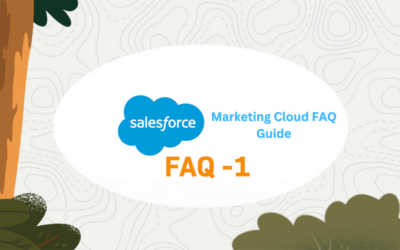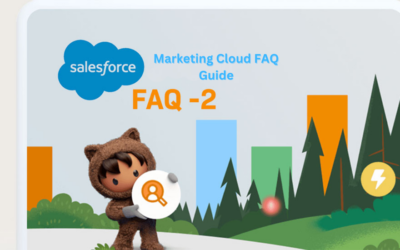In the ever-evolving landscape of online business, the choice of a website platform plays a pivotal role in shaping the digital presence and success of a company. Among the myriad options available, two prominent contenders, HubSpot and Wix, stand out for their distinct approaches to empowering businesses online. This comprehensive exploration seeks to unravel the intricacies of these platforms, offering a detailed comparison that spans the realms of website customization, marketing automation, e-commerce capabilities, pricing structures, and integration capabilities. Understanding the nuanced strengths and features of HubSpot and Wix is paramount for entrepreneurs, marketers, and business owners alike, as it provides the foundation for making informed decisions that align with their unique goals and operational requirements.
HubSpot, a stalwart in the world of inbound marketing, emerges as an all-encompassing solution with its integrated suite of marketing, sales, and customer service tools. Boasting a robust Content Management System (CMS), HubSpot not only facilitates website creation but also orchestrates a seamless connection between various facets of business operations. On the other side of the spectrum, Wix, recognized for its user-friendly website builder, champions simplicity and design flexibility. Its drag-and-drop functionality empowers users of all technical levels to craft visually stunning websites. As we embark on this exploration of HubSpot vs. Wix, the quest is not merely to pit one against the other, but to unravel the unique value propositions each brings to the table, empowering businesses to make strategic choices that propel them forward in the digital realm. If you need assistance with Salesforce CRM setup and optimization, companies like CRM Force can provide valuable expertise and support.
1- HubSpot Overview
HubSpot is a comprehensive platform renowned for its all-in-one approach to marketing, sales, and customer service. It stands out for providing businesses with a suite of tools designed to attract, engage, and delight customers throughout the entire customer lifecycle. One of HubSpot’s key offerings is its Content Management System (CMS), a robust platform that allows users to create, manage, and optimize their websites seamlessly.
HubSpot Features:
Content Management System (CMS): HubSpot’s CMS is a central component of the platform, providing users with the tools they need to build and customize their websites. It goes beyond basic website creation, offering features for content optimization, personalized user experiences, and dynamic page creation. The CMS is designed to be user-friendly, allowing even those without extensive technical knowledge to create professional and engaging websites.
Marketing Hub: HubSpot’s Marketing Hub is a comprehensive suite of marketing tools that cover everything from lead generation to analytics. It includes features such as email marketing, social media promotion, search engine optimization (SEO) tools, and marketing automation. The Marketing Hub is integrated with the CMS, ensuring a seamless connection between content creation and marketing efforts.
Sales Hub: For businesses focused on sales, HubSpot’s Sales Hub provides tools for lead tracking, deal management, and sales automation. It aims to streamline the sales process, making it more efficient and effective. The integration with the CMS allows for a cohesive experience, ensuring that sales efforts align with the overall marketing strategy.
Service Hub: HubSpot’s Service Hub is designed to help businesses provide excellent customer service. It includes features for customer support, ticketing, and knowledge base creation. The Service Hub complements the marketing and sales tools, creating a unified platform for managing the entire customer journey.
Integration Capabilities: HubSpot is known for its wide range of integrations with other tools and platforms. This ensures that businesses can connect HubSpot with their existing software stack, enhancing the overall functionality of the platform. Integrations with CRM tools, email marketing platforms, analytics software, and more contribute to a seamless and efficient workflow.
Usability:
HubSpot prioritizes user-friendliness, making its platform accessible to users with varying levels of technical expertise. The CMS’s intuitive interface and drag-and-drop functionality simplify the website creation process. Users can easily customize templates, create dynamic pages, and optimize content without the need for extensive coding knowledge.
The seamless integration of the Marketing Hub, Sales Hub, and Service Hub ensures that users can manage their marketing, sales, and customer service activities from a single platform. This cohesion not only enhances efficiency but also provides a holistic view of the customer journey.
2- Wix Overview
Wix has gained widespread acclaim as a user-friendly website builder that caters to individuals and businesses with varying levels of technical expertise. Its primary focus is on simplifying the website creation process, offering an intuitive platform with a range of templates and design options. In this chapter, we’ll delve into the key features and usability of Wix, highlighting what makes it a popular choice for those seeking an accessible and visually appealing website-building experience.
Wix Features:
Drag-and-Drop Website Builder: At the core of Wix’s appeal is its drag-and-drop website builder. This feature allows users to easily create and customize their websites by simply dragging and dropping elements onto the page. This approach eliminates the need for coding skills, making it accessible to a broad audience.
Wix App Market: Wix provides an App Market where users can explore and integrate a variety of third-party apps to enhance the functionality of their websites. This marketplace includes apps for e-commerce, social media integration, marketing tools, and more. While not as extensive as some other platforms, the App Market adds flexibility to the Wix ecosystem.
SEO Tools: Wix incorporates basic SEO tools, allowing users to optimize their websites for search engines. This includes features such as meta tags, custom URLs, and alt text for images. While Wix’s SEO capabilities are suitable for many users, businesses with advanced SEO needs may find them somewhat limited compared to dedicated SEO platforms.
E-commerce Capabilities: Wix offers e-commerce solutions through its Wix Stores feature. Users can create online stores, manage inventory, and process payments directly through the platform. While Wix may not provide the depth of e-commerce features offered by specialized platforms, it is a viable option for small and medium-sized businesses looking for a straightforward online selling solution.
Usability:
Wix is renowned for its user-friendly interface, making it easy for individuals with no design or coding background to create professional-looking websites. The drag-and-drop editor allows for easy customization of templates, and the platform’s intuitive navigation ensures a smooth website-building experience.
Template Variety: Wix boasts a vast library of templates catering to various industries and design preferences. Users can choose from a wide range of pre-designed templates and customize them to suit their branding and content.
Design Flexibility: Wix provides design flexibility, allowing users to have creative control over the look and feel of their websites. While the drag-and-drop builder simplifies the process, users can still make detailed adjustments to achieve a unique and personalized design.
3- Feature Comparison
In this chapter, we will conduct a detailed comparison of the features offered by HubSpot and Wix. Each platform brings its own set of capabilities to the table, catering to different aspects of website creation, marketing, and overall business management.
Website Customization:
HubSpot:
HubSpot’s Content Management System (CMS) is a robust platform for website customization. It goes beyond basic customization options, offering users the ability to create dynamic, personalized, and responsive web pages. With a focus on user-friendliness, the CMS allows for easy customization through a drag-and-drop interface. Users can customize templates, add and arrange content elements, and create a website that aligns with their brand identity.
Wix:
Wix excels in website customization, primarily due to its renowned drag-and-drop website builder. Users can choose from a vast library of templates and then personalize them according to their preferences. The design flexibility allows for creative adjustments, making Wix a suitable choice for users who prioritize visual appeal. The platform is especially popular among individuals and small businesses looking to create a visually stunning website without the need for coding skills.
Comparison:
Both HubSpot and Wix offer strong website customization features. HubSpot’s CMS may be more suitable for businesses seeking dynamic and personalized content, while Wix’s drag-and-drop builder is ideal for those who want a visually appealing website with ease of customization.
Marketing Automation:
HubSpot:
HubSpot is renowned for its comprehensive marketing automation tools integrated into the Marketing Hub. These tools cover a wide range of activities, including lead nurturing, email marketing, social media promotion, and analytics. The Marketing Hub’s automation capabilities allow businesses to create personalized and targeted marketing campaigns, automating repetitive tasks and nurturing leads throughout the sales funnel.
Wix:
While Wix provides basic SEO tools, it may not match the depth of marketing automation features offered by HubSpot. Wix’s focus is more on the website-building aspect, and while it has integrations with marketing apps through its App Market, the level of automation may not be as extensive as that of HubSpot.
Comparison:
HubSpot excels in marketing automation, making it a comprehensive choice for businesses with sophisticated marketing needs. Wix, while offering basic marketing tools, may be better suited for users whose primary focus is on website creation and simplicity.
E-commerce Capabilities:
HubSpot:
HubSpot offers integrated e-commerce functionality, allowing businesses to manage their online stores seamlessly within the platform. The e-commerce tools are designed to work in harmony with other aspects of the business, such as marketing and sales. This integration ensures a cohesive approach to managing the entire customer journey, from attracting visitors to closing sales and providing ongoing customer support.
Wix:
Wix’s e-commerce capabilities are provided through the Wix Stores feature. It allows users to create and manage online stores, handle inventory, and process payments. While Wix is suitable for small and medium-sized businesses with basic e-commerce needs, businesses with more advanced requirements may find HubSpot’s integrated e-commerce features more robust.
Comparison:
Both HubSpot and Wix offer e-commerce solutions, but the depth of features varies. HubSpot’s integrated e-commerce functionality is suitable for businesses looking for a seamless connection between their online store and other business operations. Wix, with its Wix Stores feature, caters to small and medium-sized businesses looking for a straightforward e-commerce solution.
4- Pricing
Understanding the cost implications is a critical factor when choosing a website platform. In this chapter, we’ll break down the pricing structures of HubSpot and Wix, shedding light on the key factors that businesses should consider when evaluating the financial aspects of each platform.
HubSpot Pricing:
HubSpot operates on a tiered pricing model, offering different plans to cater to varying business needs. Here is an overview of the key pricing tiers:
Starter Plan: The Starter plan is designed for small businesses and startups. It provides essential features for marketing, sales, and service at an affordable price. Users can access basic CRM tools, email marketing, ad management, and more.
Professional Plan: The Professional plan is a step up, offering more advanced features for growing businesses. It includes additional marketing automation capabilities, sales automation tools, and expanded customer service features.
Enterprise Plan: The Enterprise plan is the most comprehensive offering from HubSpot. It provides access to all features, including advanced customization, reporting, and support. It is suitable for larger enterprises with complex marketing, sales, and service requirements.
Pricing for HubSpot is based on the number of users and the level of features required. As businesses scale and require more advanced functionality, they can move up to higher-tier plans.
Wix Pricing:
Wix, in contrast, offers a more straightforward pricing structure, catering to a diverse range of users. Here are the key aspects of Wix pricing:
Free Plan: Wix offers a free plan that allows users to create a basic website with a Wix-branded domain. While this is a good starting point, businesses looking for a professional online presence typically opt for premium plans.
Premium Plans: Wix’s premium plans are tiered based on the user’s needs. The plans include features such as a custom domain, additional storage, removal of Wix ads, and access to more advanced design and marketing tools.
Business and E-commerce Plans: For users focusing on e-commerce, Wix provides business and e-commerce plans that include features like online store capabilities, payment processing, and additional e-commerce-related tools. Wix’s pricing is more modular, allowing users to select the features they need and upgrade as their requirements grow.
Factors to Consider: When comparing the pricing of HubSpot and Wix, businesses should consider several factors:
Feature Requirements: Evaluate the specific features offered in each plan and match them with your business requirements. Consider whether the platform provides the necessary tools for your marketing, sales, and service needs.
Scalability: Assess the scalability of the pricing plans. Ensure that the chosen platform can accommodate your business’s growth without incurring significant cost increases.
Additional Costs: Be mindful of any additional costs, such as third-party integrations or add-ons, that may contribute to the overall expenses.
Trial Periods: Take advantage of any trial periods or free plans to test the platform and determine its suitability for your business.
Support and Training: Consider the level of support and training provided by each platform. This is especially important for businesses with varying levels of technical expertise.
5- Integration Capabilities
The ability to seamlessly integrate with other tools and platforms is crucial for businesses looking to streamline their operations and enhance overall efficiency. In this chapter, we’ll delve into the integration capabilities of HubSpot and Wix, exploring how each platform connects with third-party applications to extend its functionality.
HubSpot Integrations:
HubSpot is well-regarded for its extensive ecosystem of integrations, ensuring that users can connect their HubSpot account with a wide range of tools and services. Here are key aspects of HubSpot’s integration capabilities:
CRM Integrations: HubSpot’s CRM integrates seamlessly with various customer relationship management tools, allowing businesses to centralize their customer data and streamline communication.
Email Marketing: HubSpot integrates with popular email marketing platforms, enabling users to synchronize contacts, track email engagement, and implement targeted email campaigns.
Analytics and Reporting: HubSpot integrates with analytics tools, providing businesses with comprehensive insights into their marketing, sales, and service performance. This integration helps in making data-driven decisions.
Social Media: HubSpot connects with social media platforms, facilitating social media management, posting schedules, and monitoring of social engagement directly from the HubSpot interface.
E-commerce Platforms: For businesses with e-commerce needs, HubSpot integrates with various e-commerce platforms, ensuring a smooth flow of data between the online store and the HubSpot platform.
Custom Integrations: HubSpot also allows for custom integrations through its API (Application Programming Interface), enabling businesses to connect HubSpot with proprietary or industry-specific tools.
Wix Integrations:
While not as extensive as HubSpot’s integration ecosystem, Wix offers integration capabilities through its Wix App Market. Here are key aspects of Wix’s integration capabilities:
App Market: Wix’s App Market provides a variety of third-party apps that users can integrate into their websites. These apps cover areas such as e-commerce, marketing, design, and more.
Payment Gateways: Wix integrates with various payment gateways, allowing businesses to process online transactions seamlessly through their Wix websites.
Social Media Integration: Users can integrate social media platforms directly into their Wix websites, enabling social sharing, embedding feeds, and connecting with their social audience.
Marketing Apps: Wix offers marketing apps in its App Market, allowing users to extend their marketing capabilities through features such as email marketing, SEO optimization, and analytics.
E-commerce Apps: For users with online stores, Wix provides e-commerce apps that enhance the functionality of the Wix Stores feature.
Factors to Consider:
When evaluating the integration capabilities of HubSpot and Wix, businesses should consider the following factors:
Ecosystem Extensiveness: Assess the breadth and depth of the integration ecosystem. HubSpot’s extensive integrations cover a wide range of business functions, while Wix’s App Market offers flexibility within its niche.
Specific Needs: Consider the specific tools and services your business relies on and ensure that the chosen platform can integrate seamlessly with them. Check for native integrations as well as third-party options.
Ease of Integration: Evaluate the ease with which integrations can be set up and managed. Both HubSpot and Wix aim to provide user-friendly integration processes.
Scalability: Consider how well the integration capabilities can scale as your business grows. Ensure that the chosen platform can accommodate increasing integration needs.
Conclusion
In conclusion, the comparison between HubSpot and Wix underscores the significance of aligning the choice of a website platform with the specific needs and objectives of a business. HubSpot’s strengths lie in its comprehensive suite of features, seamlessly integrating marketing, sales, and customer service tools, making it an ideal choice for businesses seeking an all-in-one solution. Its Content Management System (CMS) not only facilitates website customization but also fosters a unified approach to customer engagement. On the other hand, Wix’s intuitive drag-and-drop website builder caters to users who value simplicity and visual appeal, making it an attractive option for individuals and small businesses. As businesses weigh their options, the decision hinges on factors such as scalability, feature requirements, and budget considerations.
For those exploring alternatives to Wix, a diverse landscape of website platforms awaits. [Insert relevant alternatives and briefly highlight their key features and strengths]. Each alternative offers a unique set of features, catering to different business models and preferences. Whether prioritizing e-commerce capabilities, advanced marketing automation, or specialized design tools, the realm of Wix alternatives provides businesses the flexibility to tailor their online presence to match their distinct vision and operational requirements. Ultimately, the choice between HubSpot, Wix, or a suitable Wix alternative rests on a thorough understanding of one’s business goals and the features essential for achieving digital success. To learn more about how CRM Force can assist you in recruiting top CRM talent and optimizing your CRM strategies for successful drip campaigns, contact us today. Together, let’s maximize your customer engagement Contact Us today.





